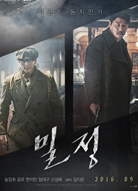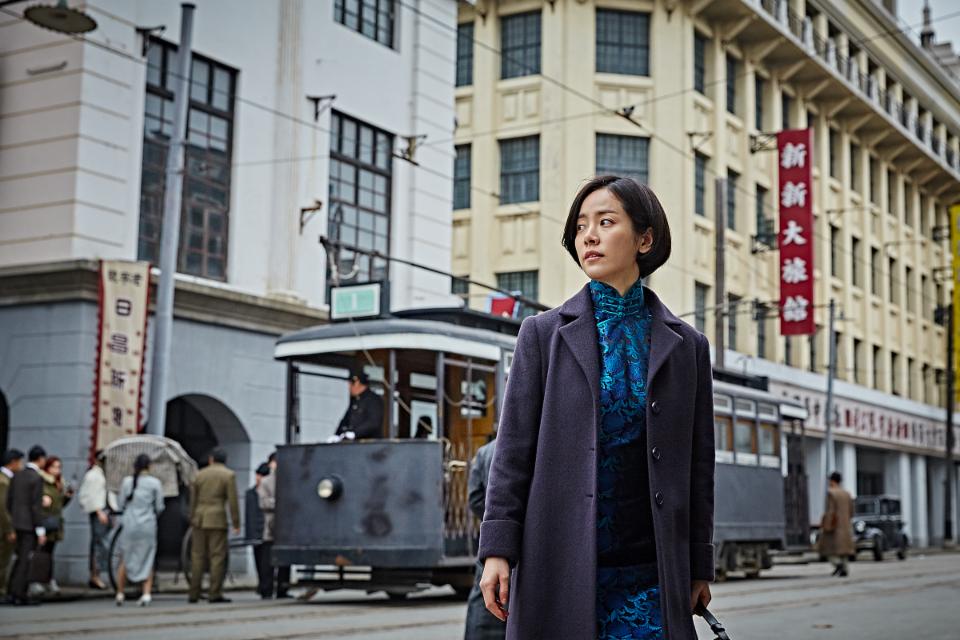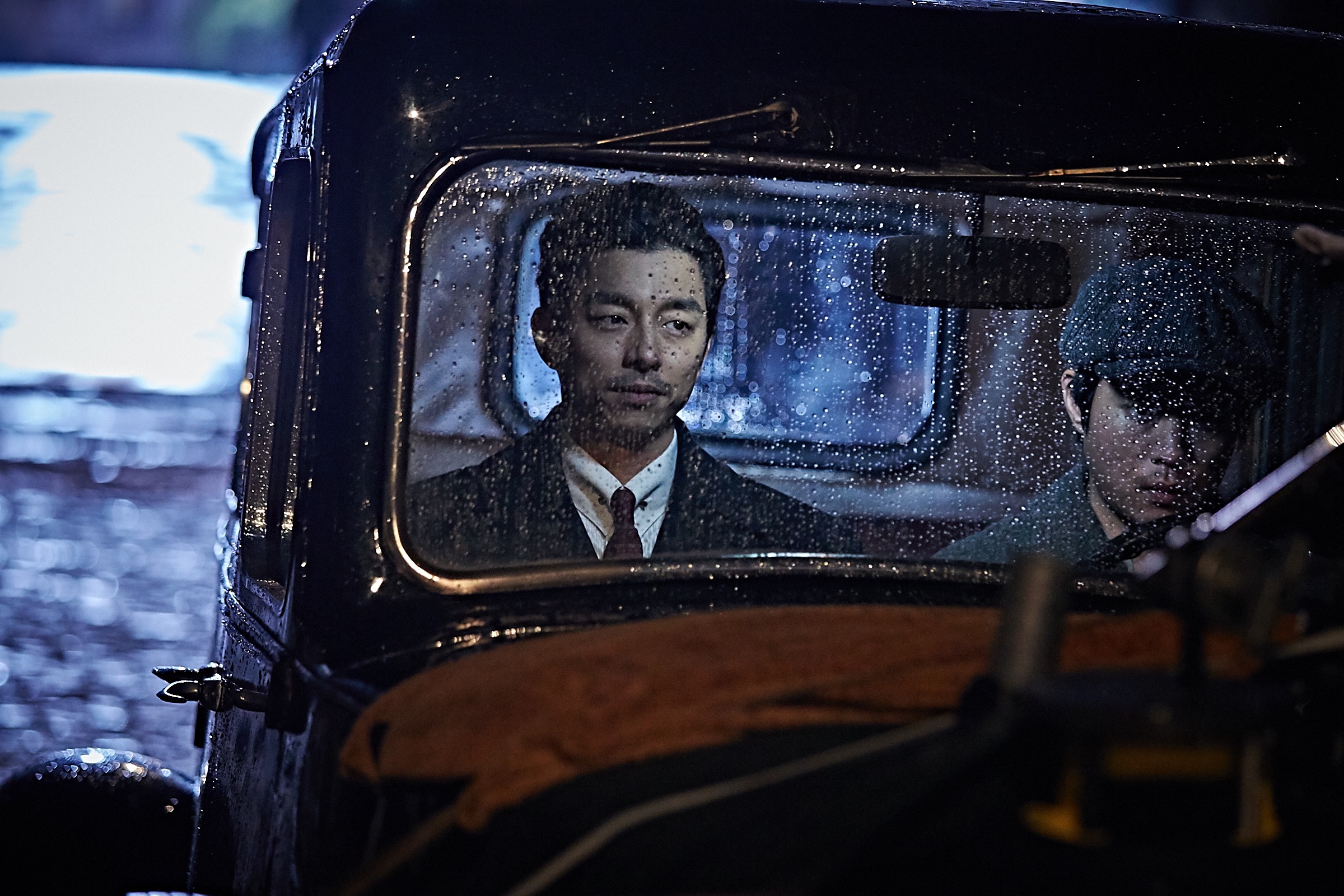 Tim here. Age of Shadows is currently making its way around the U.S. art house circuit, giving Americans our change to catch up with one of the biggest hits at the Korean box office this year. It's a historical spy thriller, set during a period of time that I suspect most of us English-speakers haven't thought about much, or at all: the stretch of time from 1910 to the end of World War II when Korea was occupied by Japan.
Tim here. Age of Shadows is currently making its way around the U.S. art house circuit, giving Americans our change to catch up with one of the biggest hits at the Korean box office this year. It's a historical spy thriller, set during a period of time that I suspect most of us English-speakers haven't thought about much, or at all: the stretch of time from 1910 to the end of World War II when Korea was occupied by Japan.
The film, set in the 1920s, takes as its subject the Korean resistance to Japanese rule, and follows the career of a double agent named Lee Jung-chool (Korean superstar Song Kang-ho), a Korean-born police captain operating under strict Japanese control...
He's been hunting down members of the resistance, a job that begins weighing down on him more than usual when his latest mission results in the death of a childhood acquaintance. This puts him in a delicate psychological state, and he ends up sucked into the sphere of the resistance: paired with partner Kim Woo-jin (Gong Yoo), Lee finds himself caught without loyalties or a country, and uncertain for most of the movie where he'll end up.

It's not, in other words, the newest thing under the sun. The divided loyalties of traitors who want to be resistance fighters is a chestnut at least as old as the 1935 IRA thriller The Informer, and the lengthy passages of The Age of Shadows which set Lee's moral crisis to the side to focus on the meticulous planning and constant wariness of the resistance is barely anew fresher. It's not just in title that the film resembles Jean-Pierre Melville's stellar French Resistance epic Army of Shadows. The familial resemblances extend all the way down to Inglourious Basterds, whose fiery climax has distinct echoes in a more than slightly Tarantinoesque set piece staged against the endless crescendo of Ravel's "Bolero."
The real question, then, is whether all of this generic familiarity hurts The Age of Shadows, and I'd be inclined to say that it really doesn't. For one thing, the Korean resistance to Japanese occupation has the benefit of being relatively untraveled ground for Western movie audiences. For another, the film is just really terrifically well-made. It's the latest swerve for direct Kim Jee-woon, who has among his credits the serial killer character drama I Saw the Devil and the farcical Eastern Western The Good, the Bad and the Weird, among other far-flung genre exercises. Just about the only thing that connects Kim's filmography is that everything he makes is eminently solid craftsmanship, buoyed by intense energy and airtight pacing (The Age of Shadows is 140 minutes long, and they fly by). This newest film isn't his most exciting, by any means, but it might well be his most handsome: everything from the appropriately shadowy cinematography to the detailed, lush costumes evokes the spirit of the 1920s with the dreamy presence of the best period pieces.

The film is also blessed to boast two outstanding performances from Song and Gong. The former gets the showier role, playing a man wracked by guilt and nerves, and haunted in every movement by the obvious suspicion that he might very well turn out to be kind of a bad guy. But Gong might even still be the more impressive, doing as much with less material. Near the end of the film, he gets to wrap up the film's major arcs with a slowly-developing half-smile that easily counts among the best acting beats I've seen in any film in 2016.
These two actors aren't by any means alone in bringing a great deal to the film: I was particularly taken by Han Ji-man's role as the de rigueur glamorous woman who's also a master spy, but who manages to redeem that hoary stock type by underplaying it. Still, there's no doubt that the film is at its best when it hinges on those two men, and their tense interplay. In fact, The Age of Shadows falls a little bit short of being the great film that their performances imply, or reaching the heights of Kim's best work as a director. The plot is unmistakably gnarled, sometimes intentionally so, as in a final act that's told out of order. But it's not really about the plot, but about the moments of sublime tension strung along it: this is ultimately a film about the tightly-wound energy of being an underground agent. For all its prestigious-looking polish, this is still a Kim Jee-woon film deep down inside: a chain of impressive set pieces that collective give the impression of a narrative more than an actual narrative. Fortunately, the director is good enough at staging those set pieces that the impression turns out to be enough.
Grade: B+
Oscar prospects: Having a name-brand director can't hurt, and the setting and production value are right up the Academy's alley; the splashy violence a bit less so. The big question mark, though, is that South Korea is currently 0-for-27 in its attempts to snag a nomination in the foreign film category, and I'd be hard-pressed to say why this would be the film to break that streak.